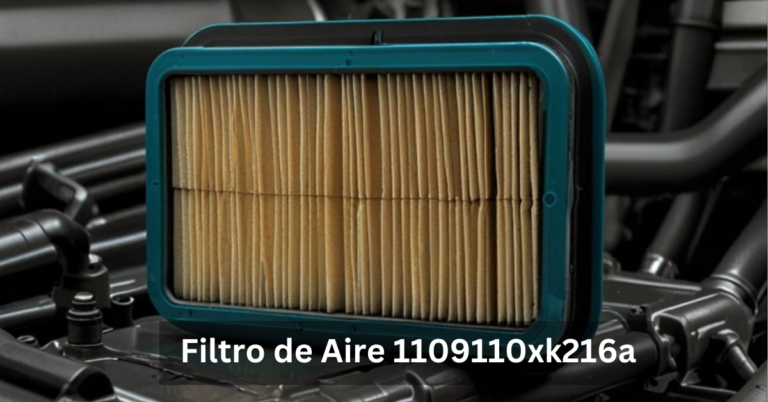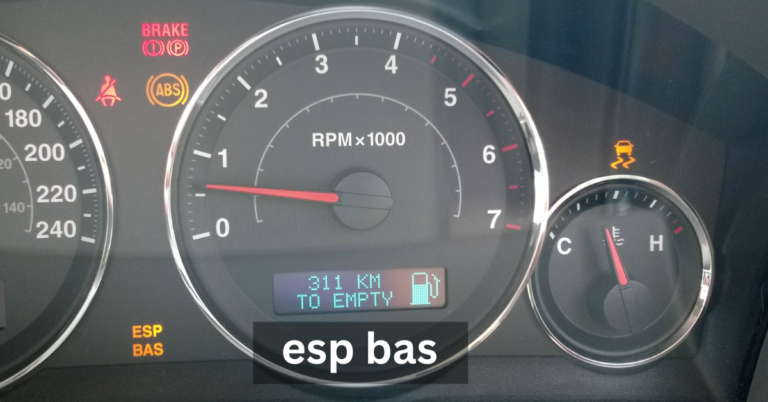Nissan K24 Propane Pressure Sensor: Tips & Fixes
In today’s automotive world, propane-powered vehicles have emerged as a cost-effective, eco-friendly alternative to traditional gasoline and diesel vehicles. One of the key components in ensuring that these vehicles run smoothly and efficiently is the propane pressure sensor, particularly when paired with engines like the Nissan K24. This engine, when combined with a propane fuel system, offers not only powerful performance but also exceptional fuel efficiency. However, to ensure that the engine continues to run optimally, maintaining the propane pressure sensor is crucial.
In this article, we will delve deep into the Nissan K24 propane pressure sensor, exploring its function, importance, and how to maintain it. With insights into troubleshooting and replacement, this guide aims to ensure that your propane-powered Nissan K24 engine performs at its best, delivering both power and fuel efficiency.
Overview of the Nissan K24 Propane Pressure Sensor
The Nissan K24 engine is part of Nissan’s innovative line of engines designed for efficiency and reliability. When converted to run on propane, this engine offers a cleaner, more cost-effective fuel solution compared to traditional fuels. One of the integral components of this system is the propane pressure sensor, which plays a vital role in monitoring and controlling the flow of propane into the engine. This sensor ensures that the engine receives the proper amount of fuel under varying conditions, optimizing both performance and fuel economy.
The propane pressure sensor in the Nissan K24 engine helps maintain a balance between the fuel pressure and the engine’s needs. This balance is crucial to ensure that the engine operates at peak efficiency, providing both power and lower emissions. The sensor monitors the fuel pressure inside the system and sends data to the engine control unit (ECU), which makes real-time adjustments to the fuel system.
Importance of Pressure Sensors in Propane Systems
Pressure sensors are indispensable in any propane-powered vehicle. These sensors are not only responsible for monitoring the fuel pressure but also for ensuring that the pressure remains within the optimal range for proper combustion. Without proper regulation, the engine may suffer from insufficient fuel, leading to rough idle, misfires, and even engine stalling. On the other hand, excessive fuel pressure can damage the engine, reduce efficiency, and increase fuel consumption.
In the context of the Nissan K24 propane engine, the pressure sensor helps to fine-tune fuel delivery, ensuring that the engine is receiving just the right amount of propane at all times. This contributes directly to both the vehicle’s fuel economy and its ability to run smoothly without experiencing power loss or excess emissions. Proper pressure regulation also plays a critical role in preventing engine damage, making the sensor a vital part of any propane fuel system.
What is the Nissan K24 Propane Pressure Sensor?
The Nissan K24 propane pressure sensor is a device used to monitor the fuel pressure in the propane fuel system of vehicles equipped with the K24 engine. Its primary function is to provide accurate readings of the propane pressure, which helps to adjust the fuel delivery to the engine accordingly. This sensor ensures that the engine receives the correct fuel pressure, whether the vehicle is idling, accelerating, or cruising at a constant speed.
By communicating with the ECU, the propane pressure sensor plays a crucial role in the engine’s performance. It ensures that the vehicle runs efficiently, with minimal fuel wastage and optimal combustion. As a result, the sensor not only enhances the vehicle’s power but also contributes to better fuel efficiency and reduced emissions.
Propane pressure is directly linked to engine performance, particularly in terms of combustion efficiency. When the propane pressure is too low, the engine may not receive enough fuel, leading to poor acceleration and possible engine misfires. Conversely, if the pressure is too high, the engine may receive an excess of fuel, leading to inefficiencies and increased emissions.
The pressure sensor plays a vital role in maintaining this balance, ensuring that the engine receives the right amount of propane at all times. By doing so, it helps maintain peak engine performance, while also optimizing fuel economy.
How Does the Nissan K24 Propane Pressure Sensor Work?
The pressure regulation process begins when the propane tank delivers fuel into the engine’s fuel system. The propane pressure sensor monitors the fuel pressure as it enters the system, ensuring that the flow rate is consistent and at the optimal level. The sensor communicates with the fuel pressure regulators, which are responsible for maintaining the correct pressure in the system.
If the sensor detects that the pressure is either too high or too low, it sends a signal to the ECU, which adjusts the fuel system accordingly. This regulation is critical for ensuring that the engine performs at its best and doesn’t suffer from fuel starvation or excessive fuel flow.
In addition to the propane pressure sensor, several other components work together to ensure proper fuel delivery in a propane-powered vehicle. These components include the propane tank, fuel lines, fuel injectors, and pressure regulators. The propane pressure sensor communicates with these components to ensure that each one is functioning correctly and that the system remains balanced.
For example, if a fuel injector becomes clogged or the fuel lines develop a leak, the propane pressure sensor will detect irregularities in fuel pressure and alert the system. This early detection helps prevent larger issues, ensuring that the vehicle continues to run smoothly.
The Nissan K24 propane pressure sensor provides real-time monitoring of the fuel system. As the vehicle accelerates, decelerates, or idles, the sensor constantly checks the fuel pressure and sends data to the ECU. This feedback allows the ECU to make instant adjustments to the fuel system, ensuring that the engine runs efficiently under all conditions.
By maintaining a steady flow of accurate data, the pressure sensor helps optimize engine performance and fuel efficiency, ensuring a smooth driving experience.
Why is the Nissan K24 Propane Pressure Sensor Important?
The pressure sensor’s primary importance lies in its ability to regulate fuel pressure. In propane-powered engines like the Nissan K24, having the right amount of fuel is essential for engine performance. If the fuel pressure is off, it can result in suboptimal engine performance, such as reduced power, poor acceleration, and increased emissions.
Maintaining optimal fuel pressure helps the engine run efficiently, reducing wear and tear and enhancing its overall reliability. The pressure sensor plays a crucial role in ensuring that the engine is always receiving the appropriate amount of fuel.
Preventing Engine Damage and Enhancing Reliability
Without a functioning propane pressure sensor, the engine may suffer from a range of issues caused by fluctuating fuel pressure. For instance, low fuel pressure can lead to engine misfires, while excessive pressure can cause internal damage to engine components. The pressure sensor ensures that the engine avoids these risks, helping to maintain its longevity and reliability.
Common Issues with the Nissan K24 Propane Pressure Sensor
One of the most common issues associated with propane pressure sensors is inconsistent fuel pressure. When the sensor is not functioning properly, it can fail to detect changes in pressure, leading to poor engine performance. Symptoms of inconsistent pressure include rough idling, engine hesitation, and stalling, all of which can affect the driving experience.
If you experience any of these symptoms, it’s essential to inspect the propane pressure sensor to ensure it is providing accurate readings.
Leaks and their Potential Risks
Another common issue with the propane fuel system is the development of leaks. A leak can occur anywhere in the fuel system, including the propane tank, fuel lines, or fuel injectors. Leaks can cause a drop in fuel pressure, leading to engine inefficiency and potential safety hazards, including fire risks.
The propane pressure sensor is key in detecting low fuel pressure caused by leaks, which allows for early detection and prompt repairs. Regular maintenance and inspection of the fuel system can help prevent this issue.
Signs Your Nissan K24 Propane Pressure Sensor Needs Attention
One of the most noticeable signs that your Nissan K24 propane pressure sensor may need attention is a decrease in engine performance. If you notice that the engine is hesitating or struggling to accelerate, it could be due to improper fuel pressure regulation. The pressure sensor might not be providing the correct data to the ECU, leading to inefficient fuel delivery.
Engine stalling or hesitation during acceleration is another indicator that the propane pressure sensor may not be working correctly. Inconsistent fuel pressure can cause the engine to misfire or stall altogether, particularly during high-load situations like acceleration.
If the propane system is leaking or if the sensor detects pressure irregularities, the check engine light may illuminate. It’s important to pay attention to this alert and address any potential issues with the propane pressure sensor immediately.
Maintaining the Nissan K24 Propane Pressure Sensor
To ensure that the Nissan K24 propane pressure sensor continues to operate optimally, regular inspections are essential. Here’s a basic checklist for maintaining the sensor:
Check the fuel system for leaks.
- Inspect the fuel lines for wear and tear
- .
- Ensure the propane tank and valves are secure.
- Clean the pressure sensor if necessary.
Test the system for proper calibration.
How to Clean and Maintain the Sensor
Over time, dirt and debris can accumulate on the propane pressure sensor, affecting its performance. Cleaning the sensor with appropriate cleaning solutions and tools can help restore its functionality. Always ensure that the sensor is properly calibrated after cleaning to avoid misreadings.
Troubleshooting Common Problems with the Nissan K24 Propane Pressure Sensor
If your vehicle is experiencing inconsistent fuel pressure, it may be time to troubleshoot the propane pressure sensor. Begin by using diagnostic tools to check for error codes from the engine control unit (ECU). The codes will help identify whether the pressure sensor is the source of the problem. Once you’ve identified any error codes, the next step is to inspect the pressure sensor and the related components for wear, damage, or contamination.
If the sensor appears to be faulty or dirty, it may need to be cleaned or replaced. In some cases, simply resetting the ECU may resolve minor issues, but if the pressure sensor is still malfunctioning, a replacement may be necessary.
To test the propane pressure sensor, you can use a multimeter to check its voltage output. If the sensor is functioning correctly, it should display consistent voltage readings that correspond to the current fuel pressure in the system. If the voltage readings are erratic or outside the expected range, the sensor may be defective and require replacement.
You can also test the sensor by manually checking the fuel pressure with a gauge. If the pressure readings don’t align with what the sensor is reporting to the ECU, it’s a clear indication that the sensor is not providing accurate information.
Replacing the Nissan K24 Propane Pressure Sensor
If you’ve determined that the propane pressure sensor in your Nissan K24 engine is faulty, replacing it is a relatively straightforward process. Here are the general steps involved in replacing the sensor:
- Disconnect the Battery: Before working on any part of the vehicle’s fuel system, disconnect the battery to avoid any electrical issues.
- Locate the Propane Pressure Sensor: The pressure sensor is typically located along the fuel line or near the engine’s fuel injector. Refer to your vehicle’s manual for the exact location.
- Remove the Old Sensor: Using a wrench or socket, carefully unscrew the old sensor from its mounting. Be cautious not to damage any surrounding components.
- Install the New Sensor: Place the new propane pressure sensor in the same location and secure it using the appropriate tools. Make sure the sensor is tightly fastened and properly connected.
- Reconnect the Battery: Once the sensor is installed, reconnect the vehicle’s battery.
- Test the System: Start the engine and check for any fuel pressure irregularities or warning lights. Use a diagnostic scanner to confirm that the new sensor is communicating correctly with the ECU.
- Monitor Performance: After installation, monitor the engine’s performance for a few days to ensure that the sensor is working properly and that fuel pressure is stable.
Choosing the Right Replacement Sensor
When replacing the propane pressure sensor, it’s important to use a high-quality, compatible replacement. Ensure that the sensor you purchase is specifically designed for the Nissan K24 engine and is rated for use in propane systems. Using subpar or incompatible sensors can lead to further issues, such as inaccurate pressure readings or even damage to the engine’s fuel system.
Conclusion
The Nissan K24 propane pressure sensor is a crucial component in ensuring that your propane-powered engine runs smoothly, efficiently, and reliably. By constantly monitoring the propane fuel pressure and communicating with the engine control unit, the sensor helps optimize engine performance, enhance fuel efficiency, and reduce emissions. Regular maintenance and timely replacement of a faulty pressure sensor can prevent performance issues, such as stalling or poor acceleration, and ensure the longevity of your engine.
Proper care of the propane pressure sensor, including regular inspections, cleaning, and testing, will help ensure that your vehicle continues to perform at its best. By following the steps outlined in this guide, you can easily maintain or replace your Nissan K24 propane pressure sensor, keeping your vehicle running smoothly and your fuel costs low.
If you notice any signs of fuel pressure issues or engine performance problems, addressing them promptly can save you time and money in the long run. Whether you’re troubleshooting, replacing a sensor, or simply maintaining your vehicle, taking care of the propane pressure sensor is an essential step in maximizing the performance of your Nissan K24 engine.
Frequently Asked Questions
How often should I replace the propane pressure sensor in my Nissan K24?
The propane pressure sensor typically lasts for many years, but it should be inspected regularly as part of your vehicle’s maintenance schedule. If you notice any performance issues like rough idling, hesitation, or poor acceleration, it may be time to replace the sensor.
What are the signs that the propane pressure sensor is faulty?
Common signs of a faulty propane pressure sensor include engine stalling, poor acceleration, rough idling, and the check engine light illuminating. If you experience these symptoms, it’s important to diagnose the sensor and address any issues promptly.
Can I clean the propane pressure sensor instead of replacing it?I
In some cases, the pressure sensor can be cleaned if it is contaminated with dirt or debris. However, if the sensor is malfunctioning or damaged, cleaning may not restore its functionality, and replacement may be necessary.
Is it difficult to replace the propane pressure sensor myself?
Replacing the propane pressure sensor is a relatively straightforward process if you have basic mechanical skills and the right tools. However, if you are unsure or uncomfortable with the procedure, it is advisable to seek help from a professional mechanic.
How do I know if the propane pressure sensor is providing accurate readings?
To ensure the sensor is providing accurate readings, you can test it with a multimeter or use a fuel pressure gauge to compare the actual fuel pressure with what the sensor reports. If the readings do not match, the sensor may be faulty and need replacement.
Can a faulty propane pressure sensor damage my engine?
Yes, a faulty propane pressure sensor can cause incorrect fuel pressure, which can lead to engine misfires, poor performance, and potential engine damage if not addressed. It’s important to replace a malfunctioning sensor as soon as possible to prevent further issues.
Stay in touch to get more updates & alerts on EroMe! Thank you




